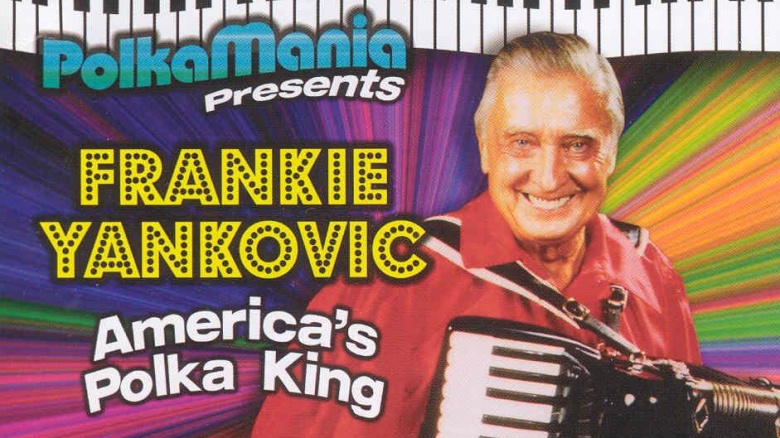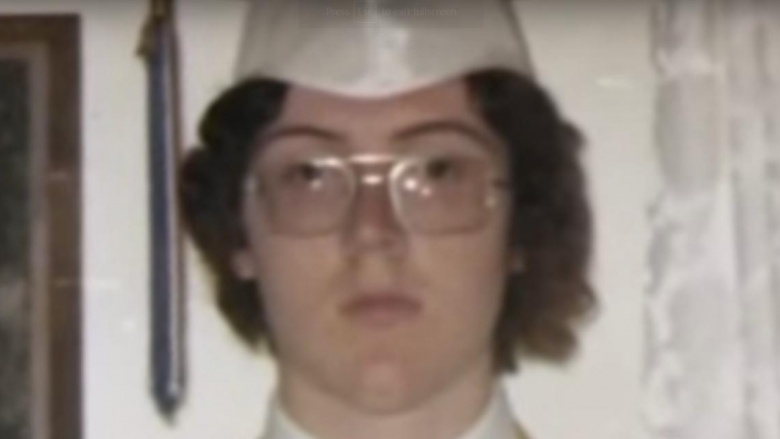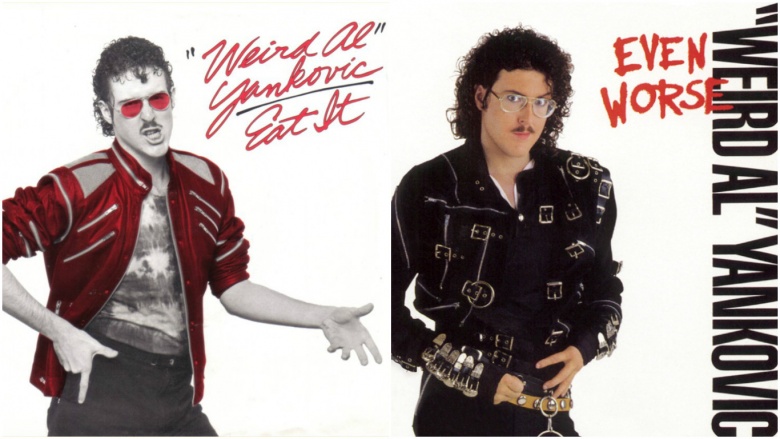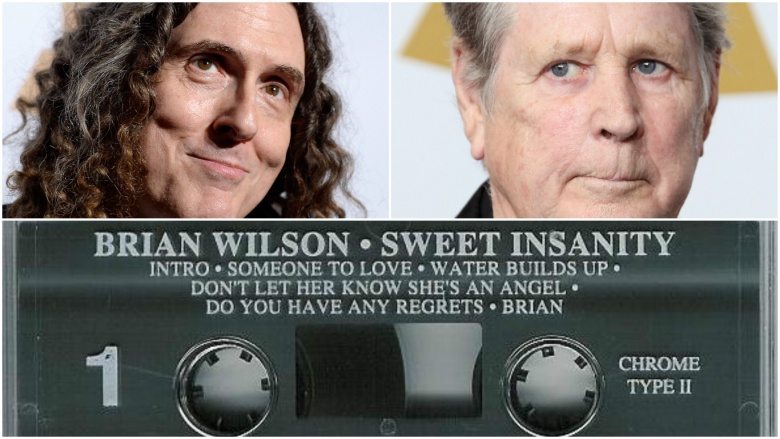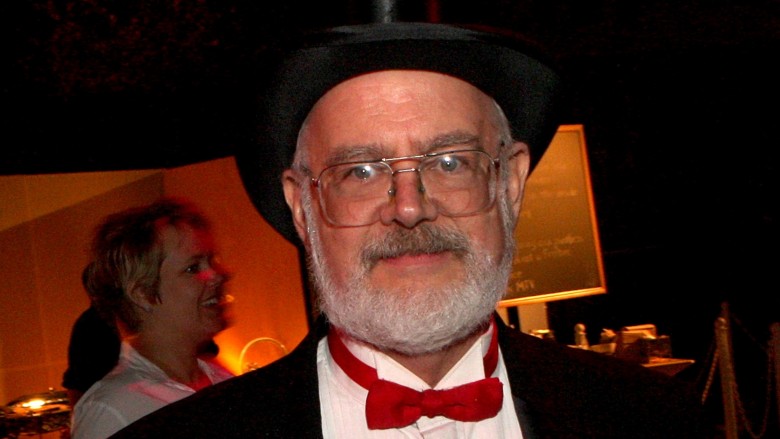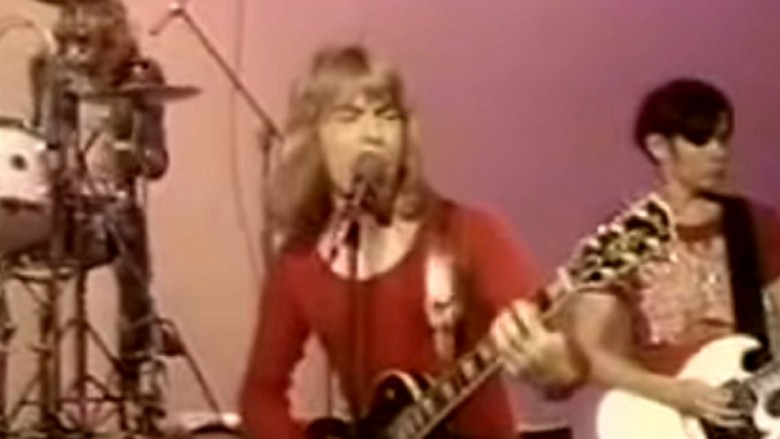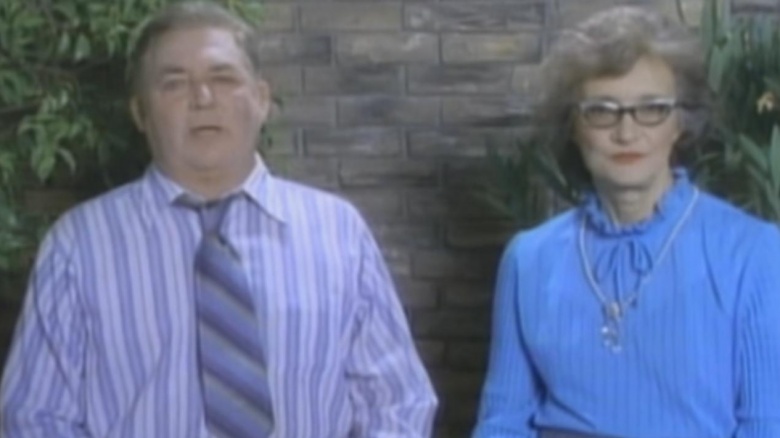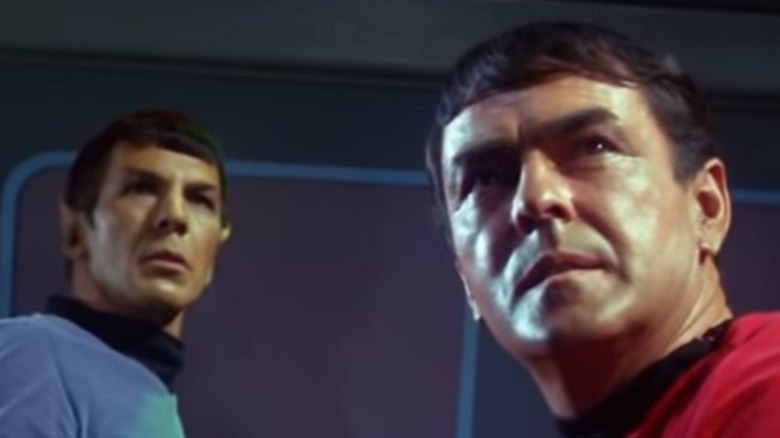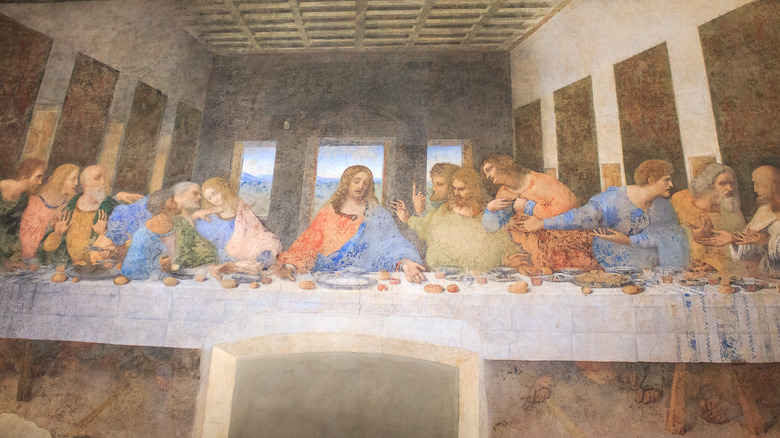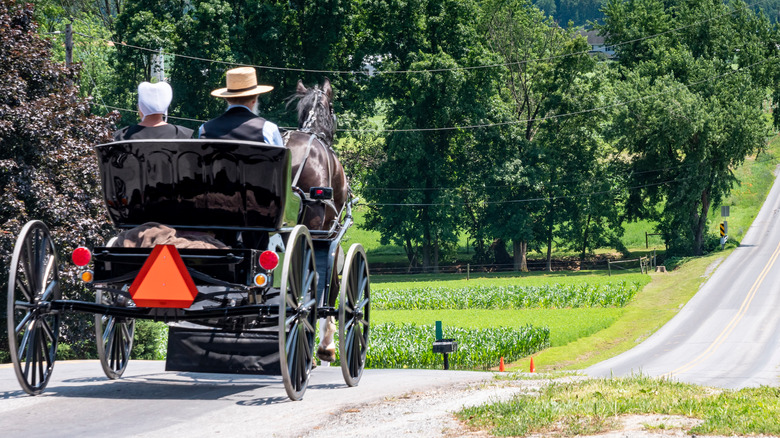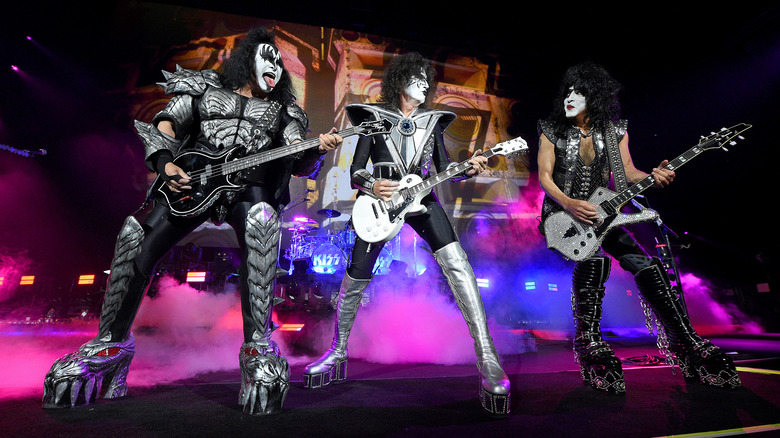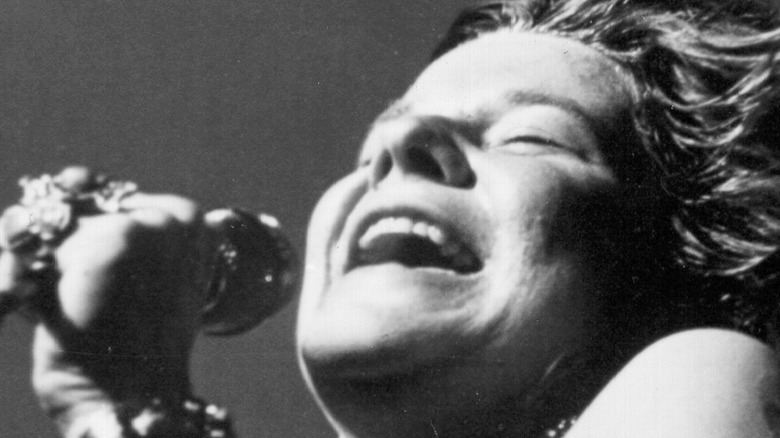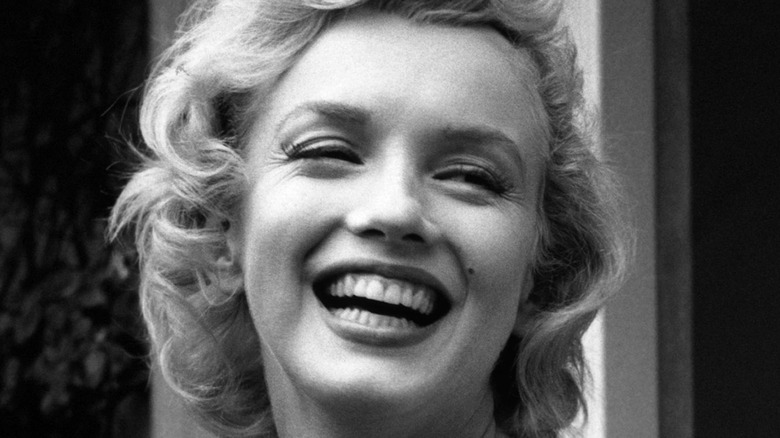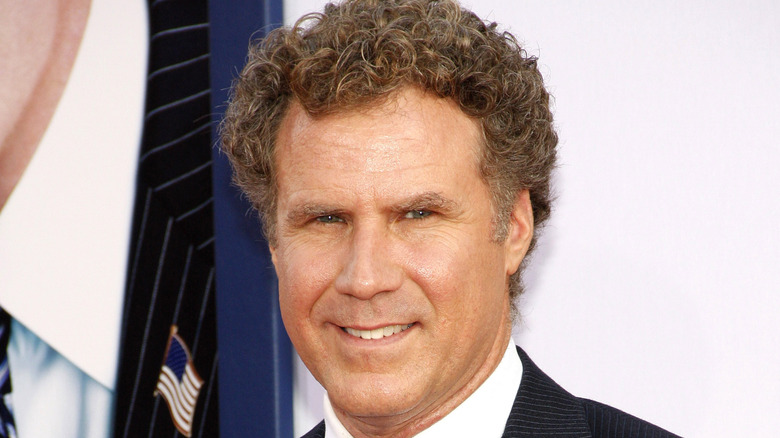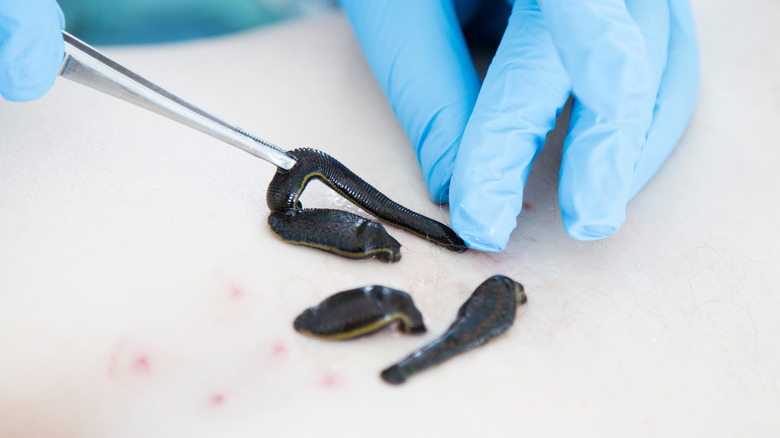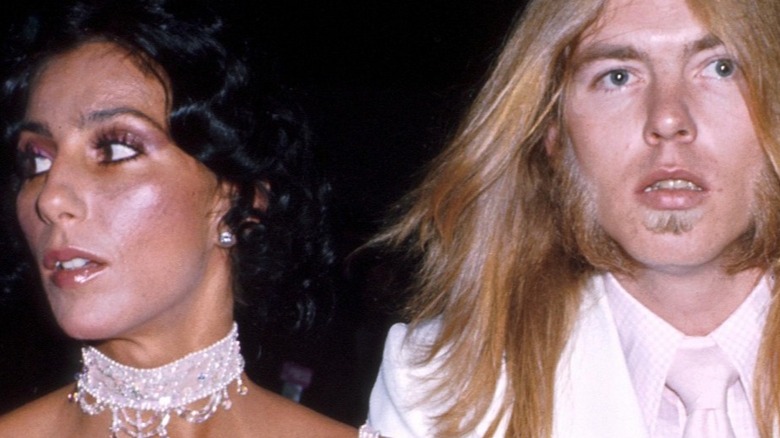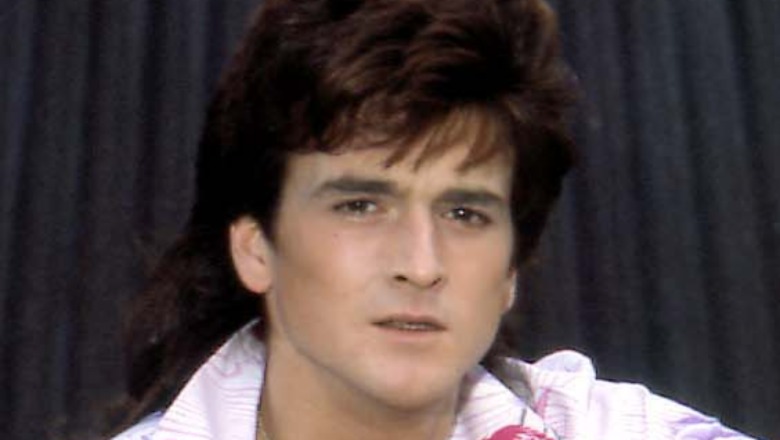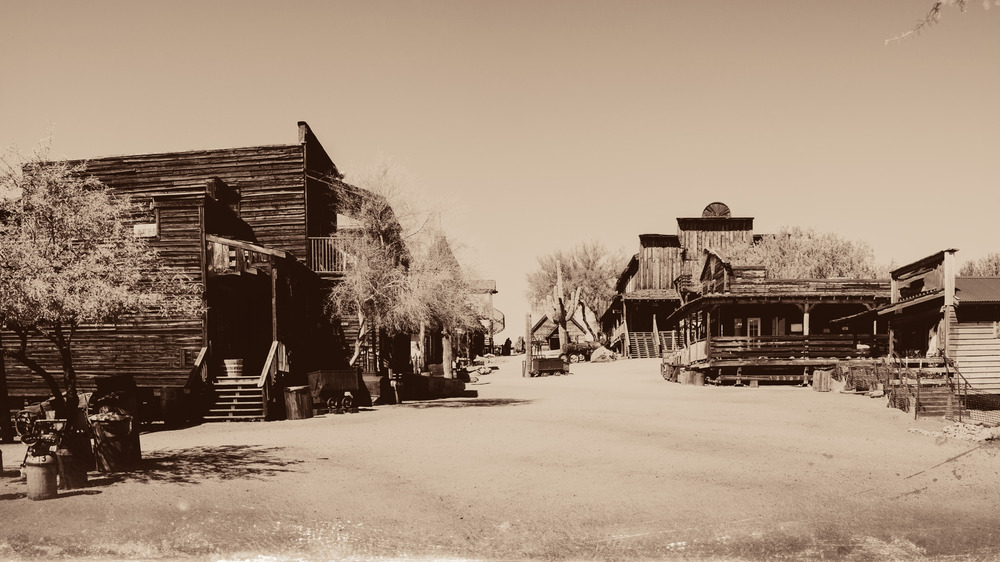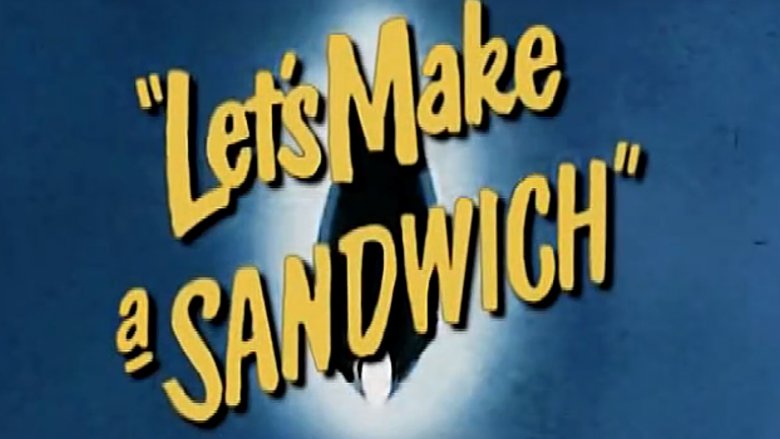
The Untold Truth Of Weird Al Yankovic
There’s a striking lack of salaciousness about “Weird Al” Yankovic, which should come as no surprise to anyone who’s caught his episode of Behind the Music , where Al was baffled as to why such a controversy-free celebrity like himself would even be considered for the series. Still, just because there’s an absence of scandal doesn’t mean there isn’t plenty of Al-formation that hasn’t yet pervaded the mainstream consciousness. As such, each of the following truths about Weird Al should successfully make your head explode just like Scanners.
Al is not related to Frankie Yankovic, “America's Polka King”
Given their shared last name, and a mutual gift for the accordion, it’d be reasonable for anyone to presume that Al and legendary polka man Frankie Yankovic are related, but they’re not. They were, however, friends, which led to the two accordionists trading licks on Frankie’s Songs of the Polka King, Vol. 1 album.
But no matter how many times the question of Frankie’s family connection to Al has been asked and answered, interviewers continue to ask him about it. As he clarified in a 2001 conversation with TheForce.Net: “Sometimes after explaining to a reporter for the third time that Frankie wasn’t my dad, I would read the article, and it would say, ‘There’s obviously a rift in the Yankovic family — Al won’t even admit that Frankie’s his father!'”
He's a legitimate academic (as well as musical) genius
Had Al’s unique skill as a parodist (and shockingly underrated prowess as a legitimate musician) failed to turn into a lifetime gig, there’s no question that he was smart enough to make his way in some other field. Al started kindergarten a year early, skipped second grade, graduated from Lynwood High School in Lynwood, California at 16, and went on to attend California Polytechnic State University in San Luis Obispo, where he received his bachelor’s degree in architecture. Could we have had the next Frank Lloyd Wright on our hands? The world will never know.
Al's gratitude to Michael Jackson has never wavered.
It’s a rare Al interview that doesn’t find him acknowledging how he effectively owes his career to Michael Jackson, first for letting him parody “Beat It” as “Eat It,” and then for letting him transform “Bad” into “Fat.” But Jackson also helped Al by not letting him parody one of his songs. He wanted to turn “Black or White” into “Snack All Night,” but Jackson refused, as “He thought [it] was more of a message song, and he didn’t feel as comfortable with a parody of that one” Al recalled to Rolling Stone. In that same interview, he also credited the rejection for getting him out of the rut of safe MJ parodies. Instead, he chose to poke fun at a new band called Nirvana, and the resulting tune‘s smash success legitimized Al’s career forevermore.
The Rolling Stone piece also reveals another fun fact about the Jackson / Yankovic relationship: in the early ’90s, Jackson told Yankovic that he liked to play Yankovic’s movie UHF for his friends at Neverland Ranch.
Not everyone is cool with letting Al parody their songs
Over the years, most artists have been cool with Al parodying their tunes — Dave Grohl once told Jon Stewart that he felt Nirvana “had arrived” when Al parodied them — but there are a few less sporty types as well. Paul McCartney’s reason for not wanting Al to turn “Live and Let Die” into “Chicken Pot Pie” is one you’d expect from him (he’s a staunch vegetarian), and Al took that one in stride. He did the same thing when Daniel Powter balked at turning “Bad Day” into “Bad Date,” and although Powter ultimately changed his mind, it was too late. As Al told the Toronto Sun, “I had to inform him that the train had left the station.”
Ultimately, though, the artist who’s gained the most notoriety for refusing Al’s overtures is Prince, who famously turned down every single pitch that Al sent his way. And there were a lot. “I had a parody of ‘Let’s Go Crazy’ that was about The Beverly Hillbillies,” Al told People earlier this year. “And I wanted to do something funny with ‘When Doves Cry,’ and ‘Kiss.’ For ‘1999,’ I wanted to do an infomercial where you could get anything you wanted by dialing 1-800-something-1999.” Clearly, the two had different ideas of what was funny, to say the very least.
“I Lost on Jeopardy” reportedly helped bring “Jeopardy!” back to television
When Al released his parody of The Greg Kihn Band’s “Jeopardy,” the eponymous game show had been absent from the airwaves for half a decade. The series was created by Merv Griffin, and after Al performed “I Lost on Jeopardy” on Griffin’s long-running talk show, Griffin gushed, “Al, Al, what you’ve done for me, I can’t tell you: with the great success of that record, Jeopardy! is coming back in September … all because of Al Yankovic!” Not bad for a complete loser.
Now, Griffin’s remarks probably don’t ring true — it’s doubtful that even the great and powerful Merv could have set up the requisite syndication deal for the series revival quite as quickly as his remarks would seem to indicate — but it’s such a great story, most people tend to accept it at face value. Plus, the song certainly didn’t hurt matters.
Al once recorded with Brian Wilson
Written and recorded while Brian Wilson was under the care of Dr. Eugene Landy, a period detailed in the 2015 film Love & Mercy, the Sweet Insanity album abruptly disappeared from Warner Brothers’ 1991 release schedule when the master tapes were stolen. Among the material lost in the theft: “Let’s Stay Together,” featuring Al on accordion. Obviously, he was beyond honored to play with the Beach Boy, because who wouldn’t be?
If you’re wondering why Wilson didn’t just re-record the songs, he explained as much to the Las Vegas Review-Journal in 2015: “We thought that maybe people wouldn’t like it, so we junked it.” Yes. Brian Freakin’ Wilson and Al Also Freakin’ Yankovic collaborating on anything. Who would want something like that?
Al was working without a net when he appeared on “Circus of the Stars”
Given how much it costs to insure actors nowadays, it’s unlikely that we’ll see a new Circus of the Stars anytime soon, but the former prime-time staple used to be a thrilling bit of fun for viewers, particularly when the acts involved some danger. Al’s act certainly qualifies: he sat, and occasionally even stood, atop a sway pole 55 feet in the air, with no safety net below him. “That was not trick photography,” Al confirmed in his website’s reader Q&A feature, “Ask Al.” “My manager says if he gets any more offers for me to be on Circus of the Stars, he’s not going to tell me about them.”
He owes it all to Dr. Demento
Weird Al has had a longer and more illustrious career than a good many of the artists he’s parodied, but it’s likely that none of it ever would have happened without Barry Hansen, also known as Dr. Demento. His syndicated radio show was one of the only places to hear comedy and novelty records in the ’70s, and his first submission from a 16-year old high school senior named Alfred Yankovic arrived on his desk in early 1976. The song was too weird to resist: accompanying himself on accordion (of course), the kid extolled the virtues of his family’s Plymouth Belvedere while badmouthing other family cars. “When he sang the line, ‘there’s something about a Comet that makes me want to vomit,'” Demento says, “that kind of perked up my ears.”
The tune was a big hit with Demento’s fans, but it wasn’t until Al got to college that he found his signature—wacky parodies. He kept Demento’s fans supplied with them, and they kept asking for more. Long before Al stormed the national scene with “Eat It,” he was already—and remains to this day—the most requested artist in the history of the Dr. Demento Show. He doesn’t have the most requested song, however — that would be “Fish Heads” by Barnes and Barnes, the video for which was directed by a young Bill Paxton. We think Al’s probably okay with that. After all, fish heads are yum.
His first big hit was recorded in a bathroom
Al’s first big parody success was “My Bologna,” a sendup of a song called “My Sharona,” which was extremely popular at the time. The song went straight to #1 … on Dr. Demento’s countdown, which is still pretty cool, and gained just the tiniest bit of national attention. Not bad for a song that was literally recorded in the john.
By this time, Al was working as a DJ at his college radio station — while they had plenty of microphones, they didn’t have a sound booth. So, Al picked the next most acoustically appropriate setting — the bathroom — and let ‘er rip, once again with nothing but his own accordion accompaniment. While a more fleshed-out version with a full rhythm section would make its way onto his self-titled debut album, Dr. Demento’s listeners were treated to an early glimpse of what one musical genius and his accordion could do. We’re not sure if this is the origin of referring to a finished recording as being “in the can,” but if it’s not, it should be.
Rick Derringer was his producer
Al sought permission for his parodies even in those early days, and it’s a good thing, because the practice made him some important connections. The songwriters of “I Love Rock and Roll,” whom Al approached about his ice cream-based parody, were totally down with the idea, and their manager also happened to manage Rick Derringer, whom they thought might have some interest in working with Al.
They turned out to be right. Derringer, who performed as a member of the McCoys on the oldie standard “Hang on Sloopy” and had had a solo hit with the ridiculously titled “Rock and Roll Hootchie-Koo,” hit it off with Al, and would go on to produce his first six albums. According to longtime engineer Tony Papa, Al began taking on production duties when Derringer was too drunk, high, or coked out to sufficiently do the job (although Derringer predictably disputes this.) Al took over production duties permanently beginning with 1992’s Off the Deep End, but Derringer should always have a place in our hearts for guiding the young artist through his early years … but not for attempting to popularize the phrase “hootchie-koo.” For that, he deserves a brisk slap.
Weird Al the voice actor
Since Al somewhat resembles a living cartoon, he’s been asked to guest as himself on actual cartoons many times over the years. He’s appeared as himself on the likes of Johnny Bravo, Robot Chicken, and of course, The Simpsons—but he’s also gained a respectable body of work voicing other characters.
As if he needs to be any more awesome than he already is, he’s voiced a ton of DC Comics villains. He’s appeared as the Riddler, Mr. Star, Dollmaker, and Darkseid in various animated series and shorts, and he’s also been a Transformer in the 2007 animated series. More recently, he voiced the outwardly-sunny-yet-pitch-black-inside Captain Peanutbutter on the excellent Netflix series Bojack Horseman, and is currently the lead on the Disney XD series Milo Murphy’s Law. We make up silly alternate lyrics to songs we like all the time — when’s Disney gonna call us?
He's had the same band his entire career
One of Al’s biggest hits during his Dr. Demento days was “Another One Rides the Bus,” featuring Al and his squeezebox with a guy banging on the accordion’s case for rhythm accompaniment. That guy was Jon “Bermuda” Schwartz, and he is Al’s drummer to this day, having played on every single one of his records. Al picked up the rest of his band right around the same time, including guitarist Jim West and bassist Steve Jay, who have played with him since 1982. He’s also had the same keyboardist for 22 years, and everybody calls him “the new guy.”
These guys are the unsung heroes of both music and comedy. Whatever they’re called upon to do, they execute it perfectly, and they’re called upon to do a lot. From parodies of everything from Michael Jackson to Nirvana to Pharrell Williams, to all of Al’s original songs and insane polka medleys, there’s simply nothing they can’t handle. They’ve even been known to pull out and ace straight covers, being particularly fond of Elvis Costello’s classic “Radio, Radio.”
Fittingly, they received their most extensive face time in the video for the song that may be Al’s crowning achievement, if we were forced to name just one with a gun to our heads. That would be, by the way …
“The Saga Begins” was written using spoilers
We could take or leave The Phantom Menace if not for one thing: it inspired Al to write “The Saga Begins,” indisputably one of the most awesome songs ever. It somehow manages to stick precisely to the complex structure and rhyme schemes of Don McLean’s “American Pie,” while offering a complete and accurate synopsis of the first film in the Star Wars prequel trilogy. This would be ridiculously impressive on its own, but Al wrote the song relying on nothing but Internet spoilers—he hadn’t even seen the film yet. For that matter, no one had, as the song was released before the movie.
One might expect George Lucas to have flipped his helmet over this, but he was actually cool with it, and felt it would help build anticipation for the film. As for Don McLean, he said he liked the song so much, he had to watch himself to keep from slipping into Al’s lyrics while performing “American Pie.” If you ask us, he should have gone with it, and just started performing “The Saga Begins” instead.
It took him a long time to reach the Top 10
It feels like Weird Al has been wildly popular for as long as music has, and you might expect him to own a string of Top 10 hits longer than a … really, really long string. Not only is this untrue, but some of his most beloved songs have peaked at shockingly low positions on the charts. “Amish Paradise?” #53. “Smells Like Nirvana?” #35, for crying out loud. Even the recent “Word Crimes,” helped along by a viral video, only reached #39. Before 2006, “Eat It” was still his greatest chart success, peaking at #12 … and then came “White & Nerdy.”
Al finally managed a #9 hit, while stunning all of us with his ability to rap even better than the guy he was parodying. The charting world made up their delay to him in 2014, when he achieved his first number one album with Mandatory Fun—the first comedy album to reach that spot in over 40 years, with ridiculous sales of over 100,000 in its first week. This makes sense — listening to the album was mandatory, after all.
He's also built himself a career as a director
When you’ve done as many videos as Al has, it makes sense you’d learn a few things about the directorial process, which may be why he decided to step behind the camera in 1986 and helm the video for his song “Christmas at Ground Zero” himself. Since then, Al has directed 14 further videos for himself, including “Amish Paradise,” “White & Nerdy,” and “Tacky,” but his confidence level clearly hit an all-time high in the mid-1990s, as that’s when he started directing videos for other people, too. Among his credits: Jeff Foxworthy’s “Redneck Stomp,” Jon Spencer Blues Explosion’s “Wail,” Hanson’s “River,” the Black Crowes’ “Only a Fool,” and Ben Folds’ “Rockin’ the Suburbs.”
Speaking of Folds, he and Al clearly found a kinship whilst working together, as they wound up collaborating in the studio as well. First, Al contributed backing vocals to Ben’s 2001 song “Time,” and then Ben chimed in on vocals and piano for the 2003 Al track “Why Does This Always Happen To Me?” What’s been even more fun, though, is seeing them turn up together when you least expect it. In 2001, Ben invited Al onstage to take lead vocals on “Song for the Dumped,” and when Ben did The Tonight Show in 2005, Al was there to play tambourine on “Landed.” In 2014, they were both part of College Humor’s “Star Wars Cantina Band Auditions.” Clearly, whatever bro-mance is going on between Ben and Al, it’s one for the ages.
The Weird Al movie
Much of the world has forgotten that Weird Al once made a movie, and this—at the risk of hyperbole—is a crime against humanity. 1989’s UHF is the story of a loser who inherits a failing local TV station and makes it over in his own zany image, and it plays like a complete distillation of Weird Al’s comic sensibility.
With appearances from Michael Richards, Victoria Jackson, Fran Drescher, Kevin McCarthy, and Gedde Watanabe, UHF combined slapstick, sketch comedy, music parody, and sheer lunacy in a way that contemporary audiences perhaps weren’t ready for. It was received terribly upon its theatrical release, sending Al into a three-year creative slump that wouldn’t end until he laid eyes on the video for “Smells Like Teen Spirit.” It’s since become a cult comedy classic, but we’re of the firm opinion that the “cult” part of that description needs to go. It’s the only Weird Al movie we’re ever likely to get, it’s freaking hilarious, and you should go watch it right now, before we make you drink from The Fire Hose.
The number “27” has popped up in Al's work numerous times over the course of his career.
Since his career began in earnest in the ’80s, Al has had a habit of incorporating the number “27” into his lyrics, his videos, and even his album covers. Want a few examples? We live to serve. In 1985’s “Cable TV,” Al references having seen the film Porky’s 27 times. In 1989’s “The Biggest Ball of Twine in Minnesota,” Al mentions a group of kids who sang “99 Bottles of Beer on the Wall” 27 times in one day. In 1996’s “Callin’ in Sick,” Al sings of hitting the snooze button 27 times, and in 2003’s “Hardware Store,” every 27th customer gets a free ball peen hammer.
On the cover of 1999’s Running with Scissors, Al’s tank top is emblazoned with a “27,” and on the cover of 2006’s Straight Outta Lynwood, Al’s standing in front of a car with the license plate “027 NLY.” And, yes, it’s still going on even now: for Al’s most recent album, 2014’s Mandatory Fun, his video for “Foil,” a parody of Lorde’s “Royals” centered around conspiracy theorists, features a faked moon landing with a clapboard reading, “Take 27.”
There are plenty more 27s out there, but if you’re wondering why Al latched onto the number in the first place, here’s as best an explanation as you’ll get: in a 2001 interview, a reporter asked about the significance of the number, and he replied, “I thought it was fairly obvious, but if you need me to explain it … It’s the cube root of 19,683!” Well, duh.
Al's parents died together in 2004 after a tragic accident.
Stories don’t get much sadder than the one about the death of Al’s parents. On April 9, 2004, Nick and Mary Yankovic — aged 86 and 81, respectively — were found dead in their home, having accidentally succumbed to carbon monoxide poisoning after starting a fire in the fireplace with the flue closed. Al’s parents were well familiar to his fans, having appeared in his mockumentary, The Compleat Al, as well as in his episode of VH-1’s Behind the Music, so the news of their death was startling and saddening. No one, however, was more shocked and devastated than Weird Al himself, who learned of his parents’ passing by phone from his wife. (He was on tour at the time.)
After taking some time to deal with his grief, Al issued a formal, thoughtful, and thankful statement about his parents’ death, inspiring more than a few tears in the process.
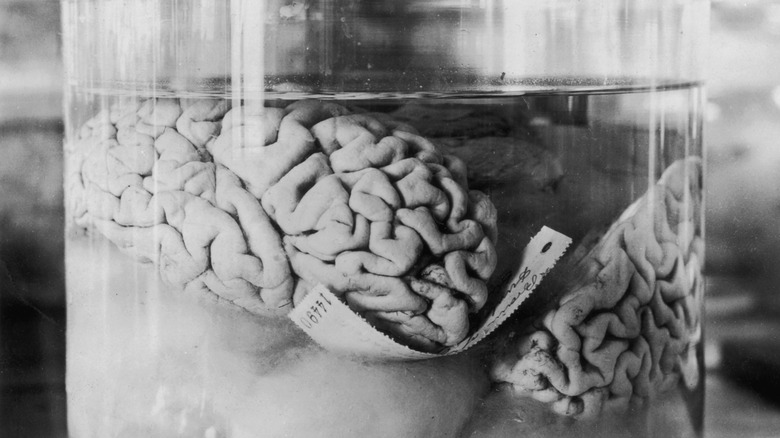
Here's How Human Brains Were Once Used As Medicine

Why You Should Think Twice Before Using The Overhead Air Vents On Airplanes

Creepy Tales Of Victorian Ghosts

'Fascinating' Study Sheds New Light On Consciousness

What Happens To Your Body When You Drink Blood?

Why Are French Bulldogs So Expensive?

Physicist Says He Knows How To Build A Time Machine
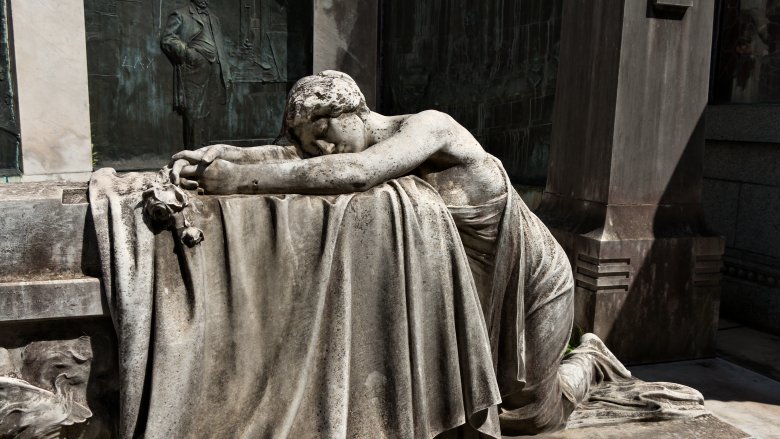
The World's Most Intriguing Cemeteries You Should Visit Before You Die

This Is Why Voice Assistants Are All Female
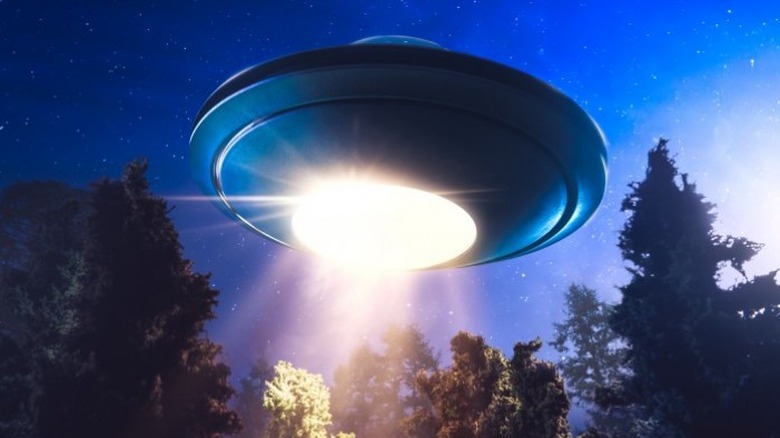
Most Bizarre Alien Abduction Stories Of All Time
